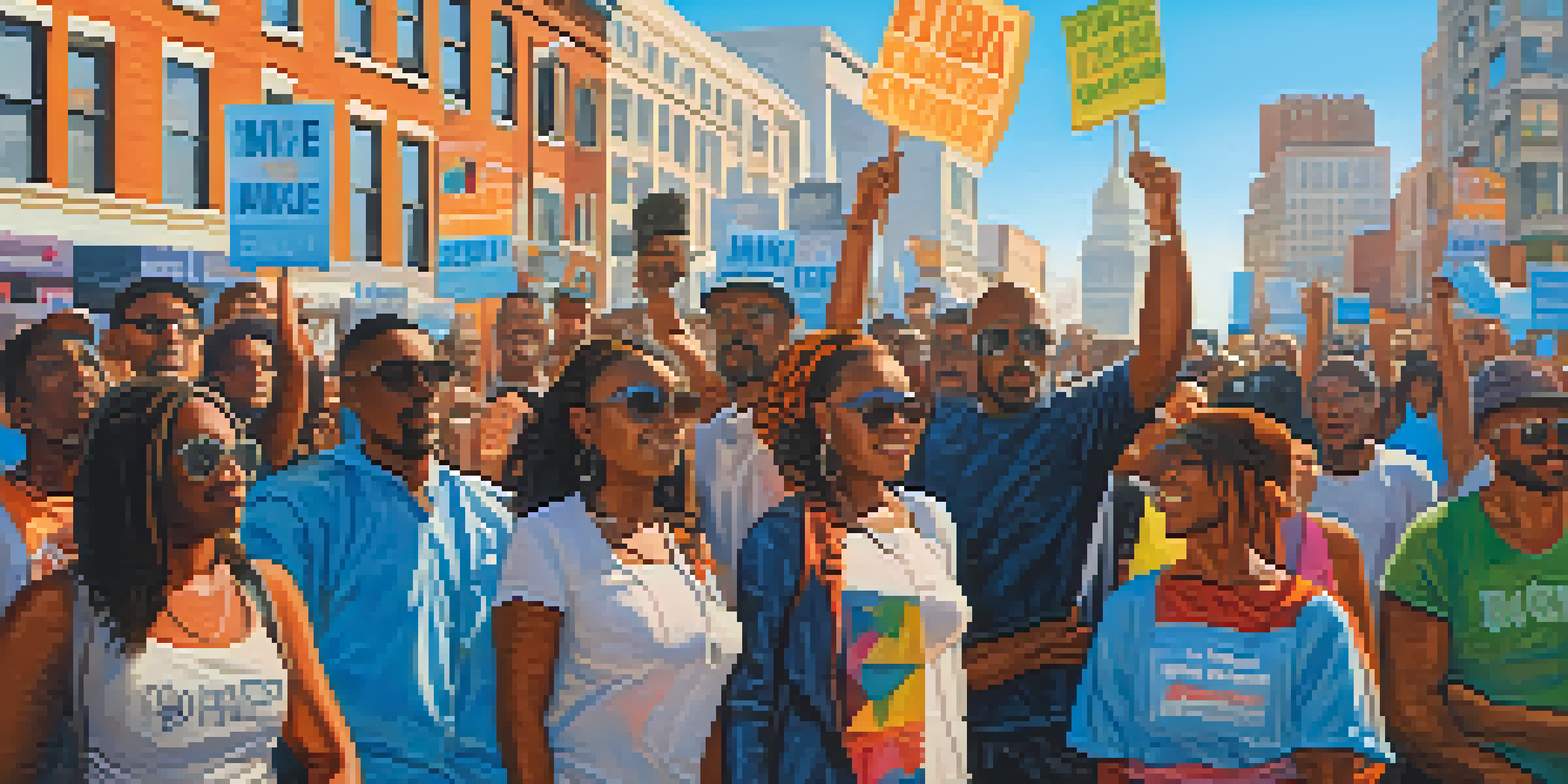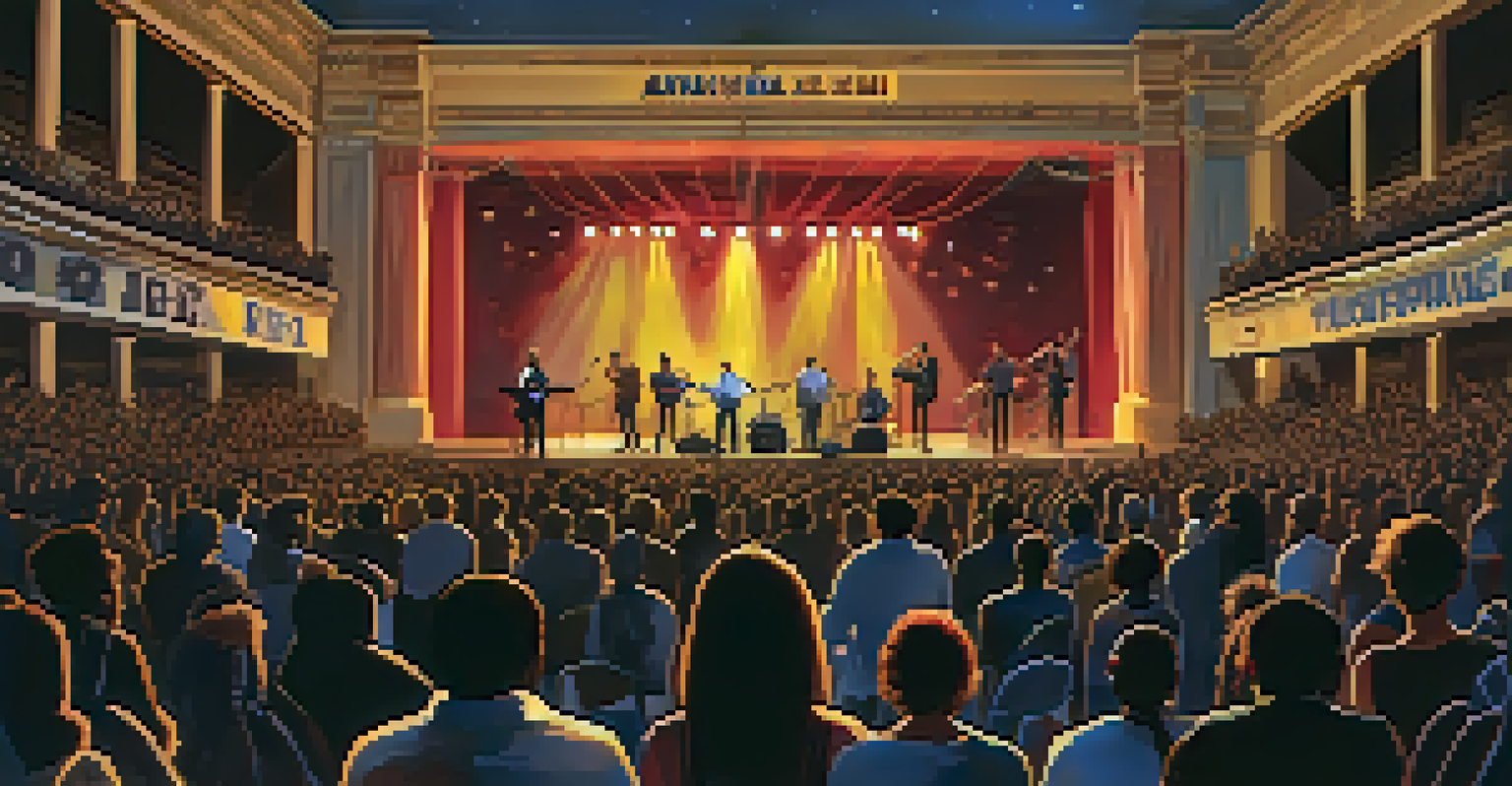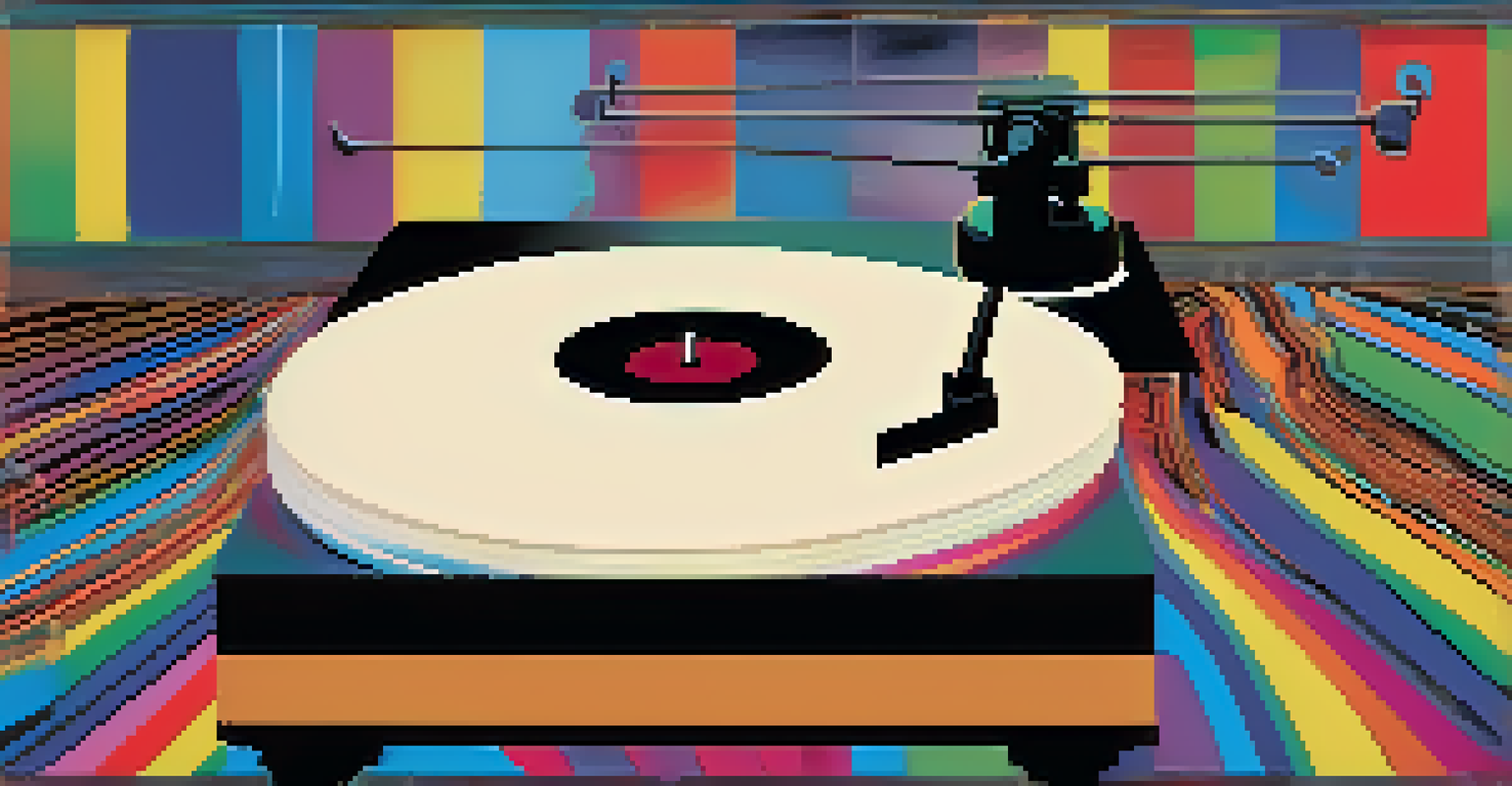Music as a Tool for Social Change in Modern Society

The Historical Role of Music in Social Movements
Music has long been an integral part of social movements, serving as a rallying cry for change. From the civil rights movement in the 1960s, with songs like 'We Shall Overcome,' to anti-war protests, music has provided a powerful emotional outlet. It unites people under shared beliefs, creating a sense of community and purpose.
Music can change the world because it can change people.
Throughout history, artists have used their platforms to amplify voices that might otherwise go unheard. For example, Bob Dylan's 'The Times They Are a-Changin'' became an anthem for a generation seeking equality and justice. Such songs resonate deeply, tapping into the collective consciousness of society and inspiring action.
Today, this legacy continues as musicians harness their art to address contemporary issues. Whether it's climate change, racial injustice, or mental health awareness, music remains a vital tool for raising awareness and mobilizing communities toward social change.
Music Genres That Drive Change
Different musical genres often carry unique messages and can resonate with specific audiences. For instance, hip-hop has emerged as a powerful voice for social justice, with artists like Kendrick Lamar and J. Cole tackling systemic racism and inequality in their lyrics. This genre not only entertains but educates listeners about pressing societal issues.

Similarly, folk music has a rich tradition of storytelling that highlights social struggles. Artists like Joan Baez and Pete Seeger used their music to advocate for civil rights and peace. The simplicity of folk melodies allows the messages to shine through, making them accessible to a wide audience.
Music Fuels Social Movements
Throughout history, music has served as a rallying cry for social change, uniting people and amplifying marginalized voices.
Even pop music, often seen as purely entertainment, has its role in sparking conversation. Songs like 'Fight Song' by Rachel Platten inspire resilience and empowerment, encouraging listeners to take action in their own lives and communities. Each genre, with its unique flair, can contribute to the larger conversation about social change.
Social Media’s Impact on Music and Activism
In the digital age, social media has transformed how music and activism intersect. Platforms like Instagram, TikTok, and Twitter allow artists to share their messages instantly and reach global audiences. This immediacy helps galvanize support for various causes, as seen during movements like Black Lives Matter.
The role of music is to make us feel human, and in doing so, it can inspire social change.
Musicians can now engage directly with fans, creating a dialogue around important issues. For example, when artists like Lizzo or Billie Eilish share their thoughts on mental health, they not only raise awareness but also foster a sense of community among their followers. This interaction makes social change feel more personal and attainable.
Moreover, viral challenges and hashtags often center around songs, amplifying their messages far beyond traditional media. A song linked to a movement can quickly become a soundtrack for change, as seen with 'This Is America' by Childish Gambino, which sparked conversations about gun violence and racism in America.
Music as a Form of Protest
Protest songs serve as a potent form of resistance, capturing the frustrations and aspirations of movements. These songs often encapsulate the spirit of the times, becoming anthems that inspire action. Think of 'Killing in the Name' by Rage Against the Machine; its raw energy and defiance speak volumes against systemic oppression.
In many cultures, traditional music has been used as a form of protest against colonialism and oppression. For instance, the South African anti-apartheid movement saw the rise of songs that united people in their struggle for freedom. Music became a means to assert identity and resilience in the face of adversity.
Genres Inspire Action
Different musical genres, like hip-hop and folk, resonate with specific audiences, driving conversations around social justice and empowerment.
Today, artists continue this tradition, using their music to challenge authority and push for change. Whether it's through direct lyrics or symbolic performances, these artists remind us that music has the power to inspire hope and demand justice.
Collaborations for Social Impact
Collaborative projects between artists can amplify the impact of music on social change. Events like Live Aid and the One Campaign have brought together musicians across genres to raise awareness and funds for global issues. Such collaborations not only highlight the importance of unity but also showcase the diverse voices within the music community.
Modern charity singles, like 'We Are the World,' demonstrate how musicians can come together to address crises. These songs create a sense of urgency, urging listeners to contribute to meaningful causes. The collective effort of many artists elevates the message and encourages broader participation in social change.
Additionally, partnerships with organizations can enhance the effectiveness of music-based initiatives. For example, artists who collaborate with nonprofits to raise awareness about mental health issues create a synergy that can lead to real-world impact, proving that music can be a powerful catalyst for social action.
Case Studies: Successful Music-Driven Movements
Several movements illustrate the profound impact of music on social change. The 'Me Too' movement gained momentum not only through personal testimonies but also through songs that resonated with survivors. Artists like Lady Gaga and Kesha used their platforms to share their stories, creating a powerful bond among those affected.
The 'March for Our Lives' movement, led by students advocating for gun control, featured performances by various artists who highlighted the urgency of their cause. Their songs and speeches inspired a generation to take action, demonstrating how music can mobilize young people to fight for their rights.
Social Media Amplifies Impact
In the digital age, social media has transformed how music and activism intersect, allowing artists to engage with fans and spread their messages globally.
Another notable example is the global climate strikes, where music played a vital role in attracting attention. Artists like Billie Eilish and Coldplay have used their concerts to advocate for environmental issues, encouraging fans to engage in activism. These case studies exemplify how music can unite individuals around a common goal, driving significant change.
The Future of Music and Social Change
As we look toward the future, the relationship between music and social change will likely continue to evolve. With emerging technologies, artists have new tools to spread their messages far and wide. Virtual concerts and streaming platforms enable musicians to reach audiences who may not have had access to live performances.
Furthermore, the growing awareness of social issues among younger generations suggests that music will remain a vital part of activism. As new artists emerge, they will undoubtedly address contemporary challenges through their music, ensuring that the spirit of social change lives on.

Ultimately, the power of music to inspire and unite will always be relevant. Whether through lyrics that speak to the heart or melodies that stir emotions, music will continue to serve as a cornerstone for social movements, encouraging us all to be a part of the change.